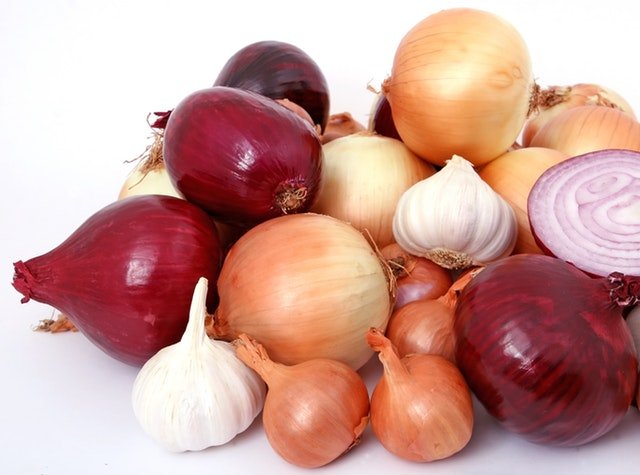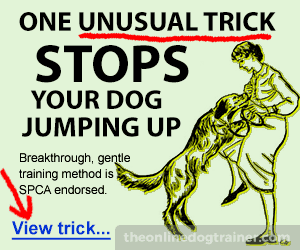8 Foods That Can Harm Your Dog
By Beth Baker

You probably already know it’s not a good idea to feed your dog from your dinner plate. But once in a while, when you’re not paying attention, your dog gets hold of people food anyway. Usually it’s not a big deal, but there are some particular foods that are dangerous for dogs to consume, and might even prove fatal. Become familiar with this list of foods so you can prevent accidents.
1. Avocado
It takes a lot of avocado to poison a dog, but it doesn’t take a lot to cause an upset stomach. Poison-wise, the most dangerous part is the avocado pit. The pit, also called the “stone” or the “seed,” contains a substance called persin that is poisonous to animals. Also the size and shape of the pit make it a choking hazard, and if successfully swallowed it can cause intestinal blockage.
You CAN have the calm, well-behaved little dog you've always wanted! Click here to learn how.
2. Chicken
Chicken bones that have been cooked are brittle. Chewing breaks them into pieces with sharp points that can puncture a dog’s stomach and colon. If you suspect your dog has eaten cooked chicken bones then you should monitor his behavior. Any sign of pain or discomfort should result in a trip to the vet. (Note that raw chicken bones are soft and therefore are not dangerous. Dogs eat chickens without injury.)
3. Chocolate
This is the one most people already know about: Just like humans, canines are fond of cookies, cakes and candy, but these are often made with chocolate and a dog’s system can’t tolerate chocolate. The darker the chocolate, the more dangerous it is. Chocolate consumed in large quantities by a dog can cause convulsions and even death. If you know your dog has eaten a large amount of dark chocolate, force the dog to swallow hydrogen peroxide to induce vomiting. If the chocolate is not expelled quickly, take your dog to an emergency vet.
4. Corn cobs
It’s safe enough to allow your little dog to gnaw on the remains of a corn cob while you hold on to the other end of it. But the cob itself is not digestible, so don’t let your dog bite off pieces of it and swallow them. Pieces that are too big can become lodged in the gastrointestinal tract.
5. Dairy products
Many dogs are lactose intolerant. A small amount of cheese or yogurt is fine because these don’t contain much lactose, but you should avoid giving your dog milk or ice cream, which can cause gas, vomiting, constipation or diarrhea.
6. Garlic and onions
Raw garlic and onions are very dangerous for dogs. Garlic especially is toxic. Store raw garlic and onions, as well as jars of garlic and onion powder, in a place your dog can’t reach. Plants in the onion family, to which garlic belongs along with leeks, chives and scallions, contain compounds that can poison pets. You might not see symptoms of poisoning until a few days have gone by and your dog becomes lethargic and passes dark orange or red urine.
7. Spoiled food
You might think about feeding spoiled food to your dog because you know he’d eat it — but don’t. Some of the molds that grow on food contain harmful toxins. They can cause tremors to start, worsening into spasms and finally resulting in death. Don’t feed your dog moldy food. Be careful not to leave rancid food in trash that your dog could get into.
8. Xylitol
Pronounced ZY-lit-tall, this substance is an artifical sweetener used in certain sugar-free foods, especially breath-freshening products like chewing gum, breath mints, mouthwash and toothpaste. Xylitol doesn’t affect blood-sugar levels in humans, but in canines it causes a rapid drop in blood-sugar resulting in confusion and convulsions, and eventual liver failure. Keep these items as well as sugar-free candies and fruit products where your dog can’t reach them.
You CAN have the calm, well-behaved little dog you've always wanted! Click here to learn how.







